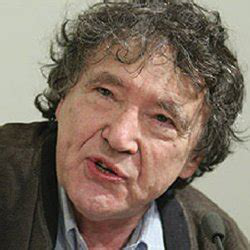Leon Rozitchner
Country:
Argentina
Company:
Education
His father was born in
Bessarabia. L e n Rozitchner is one oft h e generation of
Argentine intellectuals who emerged in the 1950s around the journal Contorno. As a psychoanalyst and - and massively influenced, as were al his confrères, by Sartre and the phenomenologicaltradition - he undertook a lengthy theoretical project that attempted to engage psychoanalytical categories in theunderstandingof politics, most notably ni explaining and countering that most protean and influential phenomenon of Argentine politics, Peronism - the baleful legacy of Juan Domingo Perón himself, and itslinks to the catastrophic dictatorship of 1976-1983.
From the seminal Freud and the Limits of Bourgeois Individualism (first edi-
tion 1972), in which he developed an account of the relation of psyche and capital, and the revolutionary implications ofFreud's supposedly 'conservative social works,
to the recent The Thing and the Cross (1997), in which he explores the archaeology
of capitalism in Augustinian Christianity, Rozitchner has laboured to provide a cat-
egorial apparatus that links libido, leadership and economic form. But he has also
been a prolific writer on the conjuncture, intervening for fifty years in debates on the Left across the continent. He produced his important analysis of bourgeois morality,
Bourgeois Morality and Revolution (1963) - the basis of the dilemmas addressed in Tomás Gutiérrez Alea's film Memories of Underdevelopment (1968).
